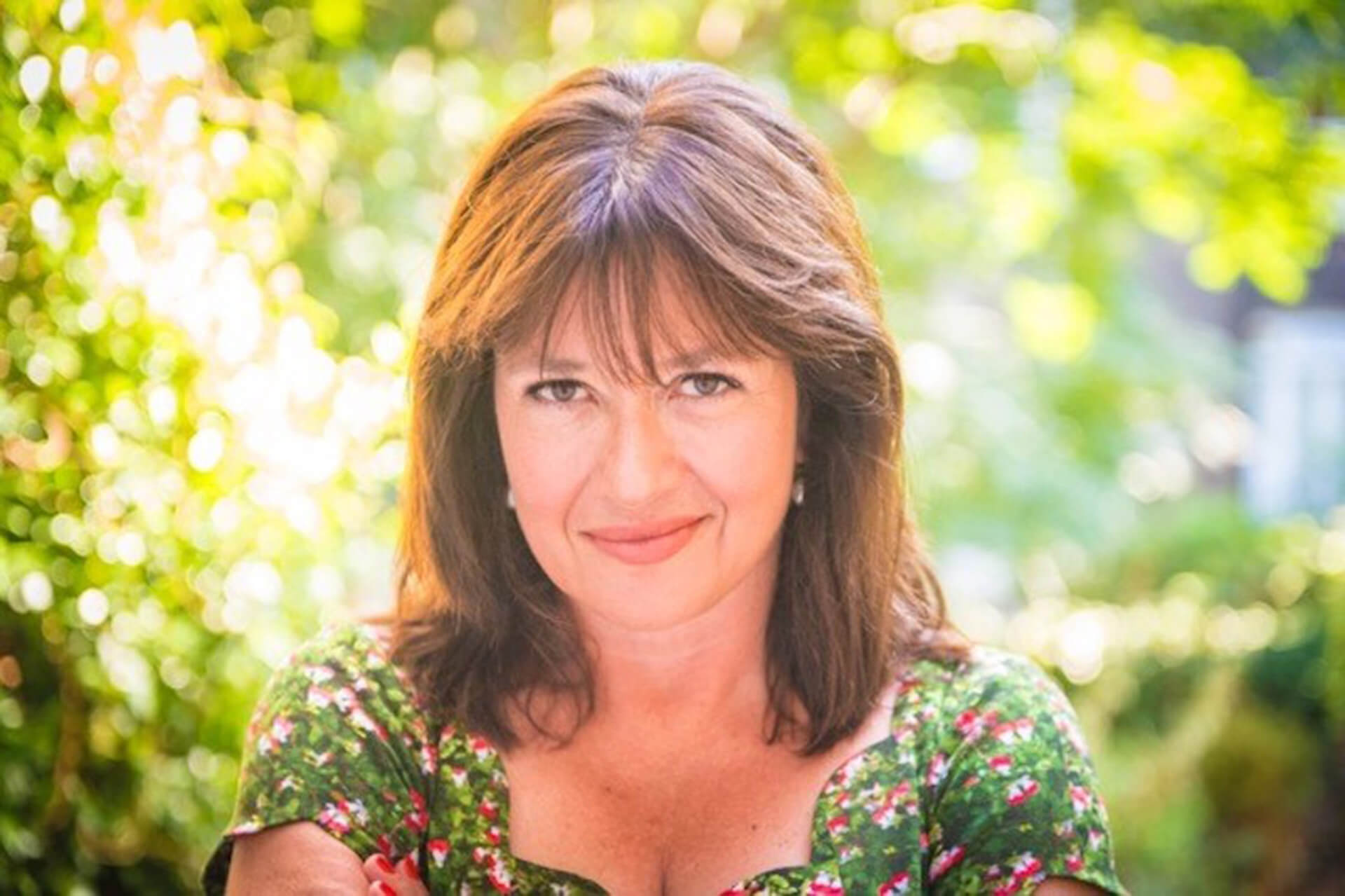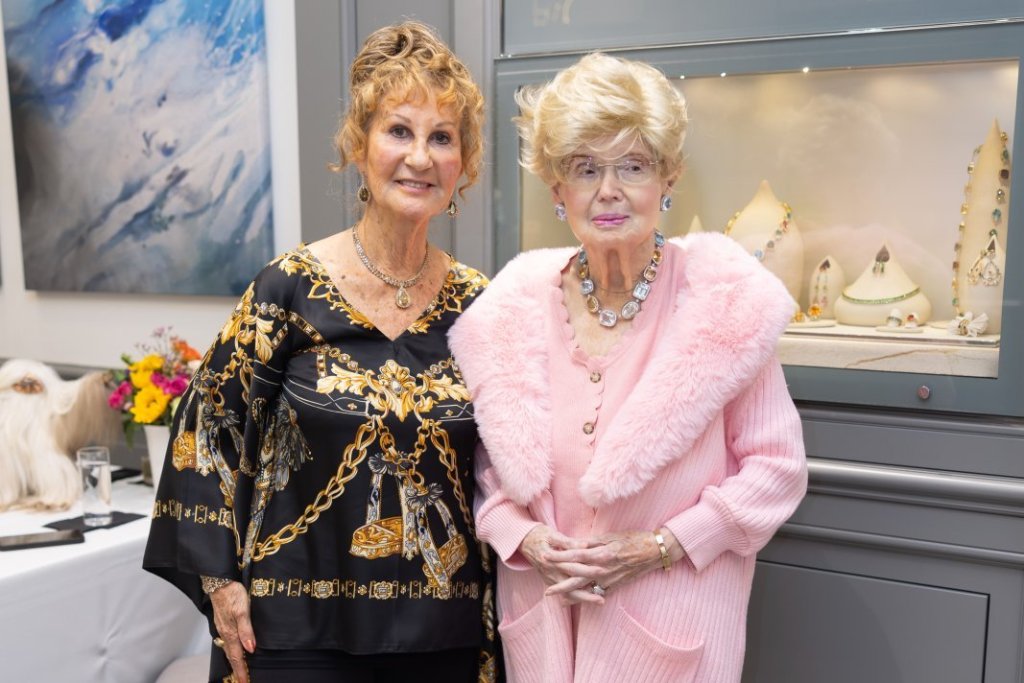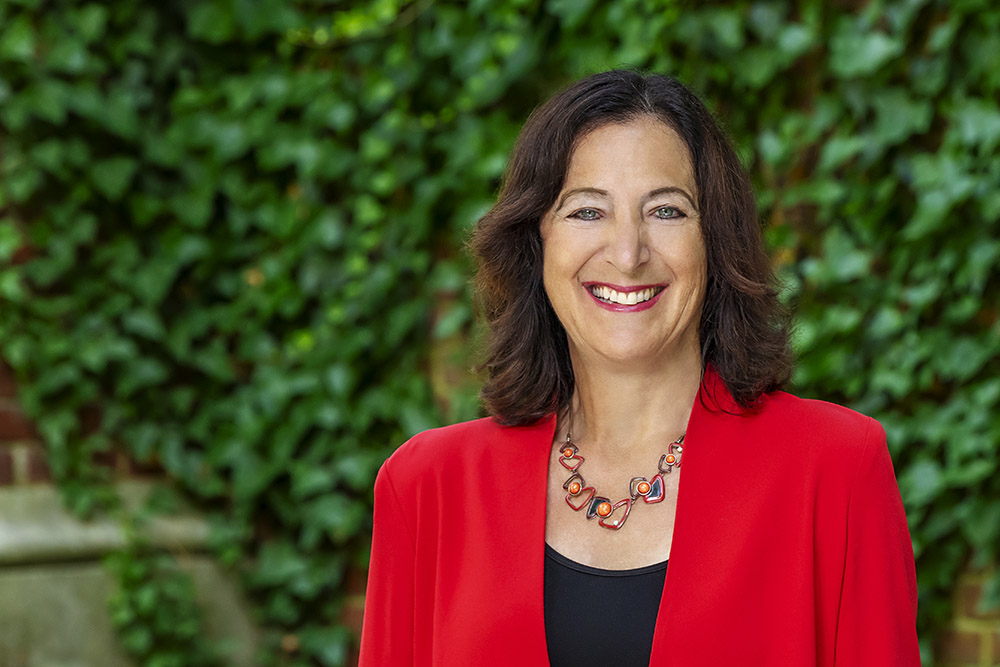Daisy Goodwin: Channeling Victoria’s Strength

Say “Queen Victoria” and most people will immediately picture the aged monarch, paunchy and sullen, dressed in black with a lace doily on her head: an Alfred Hitchcock in drag.
And Prince Albert? Um, do you have him in a can?
Daisy Goodwin, writer and creator of the smash-hit PBS series “Victoria” — starring Jenna Coleman and Tom Hughes — wasn’t that removed from those concepts when she was assigned the queen’s journals to read while at Cambridge University.
“I was expecting something as sour and off-putting as the statues of the old queen that are everywhere in London,” she said. “But when I came to read them, I realized that in the early years of her reign she was just this young girl, who liked dancing and flirting and men.”
“Victoria,” which is currently filming its third season, chronicles those early years — from the 18-year-old’s ascension to the throne to her flirtation with Lord Melbourne, her prime minister, to her romance and marriage to Prince Albert and the subsequent children she birthed (nine) — all while running the most powerful country in the world and facing the deleterious overview of a male-dominated society.
“There is a wonderful passage where she writes about how handsome Albert looks in his white cashmere breeches, with nothing on under them,” Goodwin said with a laugh. “I realized then that she was a girl after my own heart.”
(The exact quote, from November 1, 1839, is: “It was piercingly cold, and I sat in my cape, which dearest Albert settled comfortably for me. He was so cold, dear Angel, being in grande tenue with tight white cazimere pantaloons (nothing under them) and high boots.”)
The vision of the feisty young queen stayed with Goodwin as she went on to write novel after novel, get married, and have children of her own. But life gets, well, life-ier. A series of seeming setbacks — personal, health, and financial, all in the past now — is what motivated Goodwin to channel the strength of Victoria and write about her in earnest with the publication of her novel, Victoria.
The novel was a success, but the “Masterpiece” series is an honest-to-goodness blockbuster, one of the highest-rated PBS shows in over 20 years. Although the show’s fans cross all lines of gender and age, it has resonated deeply with young women.
“Someone asked me if I was writing a feminist show,” said Goodwin. “To be honest, that hadn’t occurred to me, but having seen the reaction, I realize that any show that puts a young woman at its heart, where she has all the power, is a more radical act than one might imagine,” she said.
“I think that queens have the power to change people’s perceptions of women in power, certainly that was true in the 19th Century. Here was a woman, the head of state, who got married and had children while she was on the throne. She was the first person to do that, and I think that contributed to a profound change in the way women were perceived.”
Although a fan of the monarch and how she navigated the mores of the day, Goodwin does not yearn for the Victorian age. One takeaway for her — “It’s made me very grateful to be alive today and not then! Imagine having nine children, not out of choice, but because you had no access to contraception. Poor Victoria loved her husband, but she really didn’t want to spend all her married life pregnant.”
If she could change one vision that people have of Victoria — besides the old-woman-in-black image — it’s the queen’s reputation of being a second-rate parent. “She gets a bad rap as a mother, but I think that’s the misogynistic hand of history,” said Goodwin. “She expects her children to step up to the plate and woe betide them if they don’t.”
“It’s such a relief to read about a working woman who isn’t fretting about whether she is spending enough time with her children,” she continued. “She loved them, sure, but she didn’t dote.”
Speaking of motherhood, Goodwin’s daughter, Ottilie Wilford, is a script editor on the show, and has penned two of the episodes. And much of the show revolves around Victoria’s dysfunctional relationship with her own mother, the Duchess of Kent — a controlling German woman who forced her daughter to sleep in the same bed with her until the day Victoria was named Queen of England.
Has the experience been a positive one for Goodwin and Wilford?
“It’s been a real treat, for me anyway,” Goodwin said. “Ottilie is a wonderful writer and I have learned so much from the way she approaches things. It can’t be easy writing alongside your mother but she is very tactful — she didn’t get that from me!”
Goodwin is an occasional visitor to the South Fork and a past participant of the BookHampton summer reading series, where she discussed her novel The American Heiress, which chronicles Newport debutante Cora Cash, who traveled to England in the 1890s and bagged herself an English Duke.
Goodwin’s take on the Hamptons? “It’s divine. I first visited when I was 18 and I just couldn’t believe how tidy it all was. I love swimming in the ocean, even though I have had to be rescued a couple of times,” she said, laughing. “You have fab lifeguards.”
So, what’s coming up this season for Victoria and Albert? “Revolution abroad and turmoil at home, domestic and otherwise. More children, obviously, and a surprise addition to the family. Plus, the Great Exhibition, which is Albert’s great contribution to British history,” she said.
In keeping with tradition, the show will air in the United Kingdom on ITV, probably in the fall, before hitting our shores, most likely in early 2019.
When it comes to waiting that long for Goodwin’s next addictive foray into the lives of Victoria and Albert, there’s only one thing to say: we are not amused.
bridget@indyeastend.com



